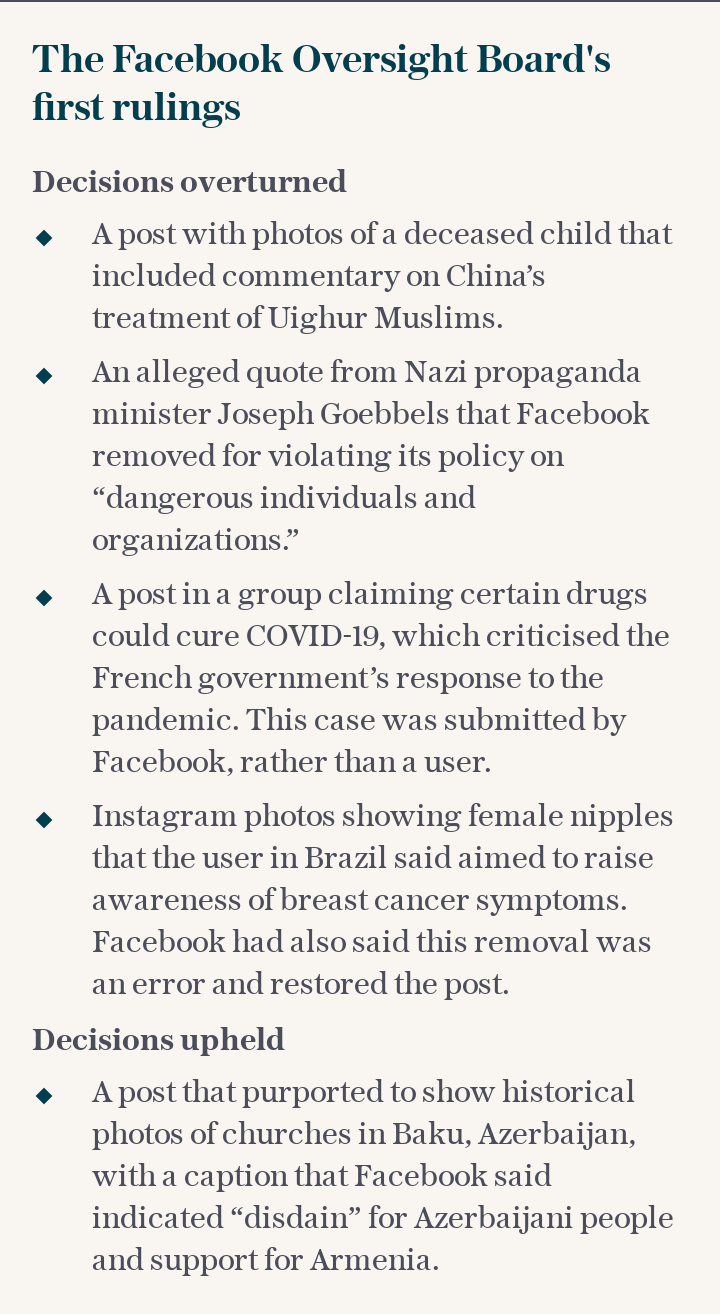Facebook's Supreme Court could start curbing viral posts, claims Alan Rusbridger

Facebook 'Supreme Court' should be given new powers so it can force the social media site to block posts from going viral, panel member Alan Rusbridger has said.
The Oversight Board is considering "what happens if you want to make something less viral", former Guardian editor Mr Rusbridger told the House of Lords Communications and Digital Committee.
He added that it could ask for more freedom to intervene in current user activity rather than just reviewing decisions already made by Facebook - a change which would require the panel to be able to move much faster.
Facebook set up the independent Oversight Board late last year to rules on choices it had made over taking down or leaving up certain posts.
The 20-person panel, made up of journalists, politicians and judges, released its first set of decisions in January, overturning Facebook's moves to remove four posts in what was seen as a sign it would err towards freedom of expression.
Mr Rusbridger said: "I think [Facebook's Oversight] Board will want to expand in its scope. Already we're frustrated with just saying take that down, and leave that up."

The comments come in the wake of significant criticism of Facebook over viral content spreading on its site about the Covid-19 pandemic, including anti-vaccination posts, which it said it last month vowed to ban.
Mr Rusbridger said he expects the board will also start looking at what they can do to strengthen rules for suspended users.
He said: "What happens if, without commenting on any high profile current cases, you didn't want to ban someone for life, but you wanted to have a sin bin, so if they misbehaved you could chuck them back off again?"
The panel is reviewing Facebook's decision to indefinitely suspend Donald Trump, the former US president, in the wake of posts he made on the site ahead of the Capitol Hill riots.
Mr Rusbridger hit back at suggestions that the board is not entirely independent because members are paid by Facebook. According to a report in the New Yorker, those on its panel earn "six-figure salaries for putting in about fifteen hours a week" - something which has sparked concerns over impartiality.
In the hearing on Tuesday, the former editor was asked whether those on the board would start to take decisions in Facebook's favour when their three year term approaches renewal.
But he said: "We're not there to please Facebook", adding that the panel had kicked Facebook out of early meetings. "We don't think we work for Facebook at all".
His comments came at a House of Lords committee hearing into freedom of expression, coming ahead of the introduction of new online harms laws in the UK, introducing penalties on social media firms who fail to protect children.
Mr Rusbridger said the laws appear "reasonable and sensible", although cautioned that hefty fines on the major tech firms could hurt competition and make it harder for smaller rivals to compete.
